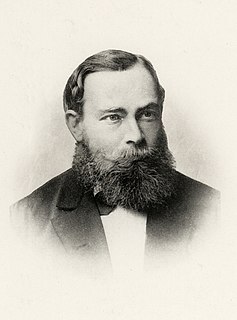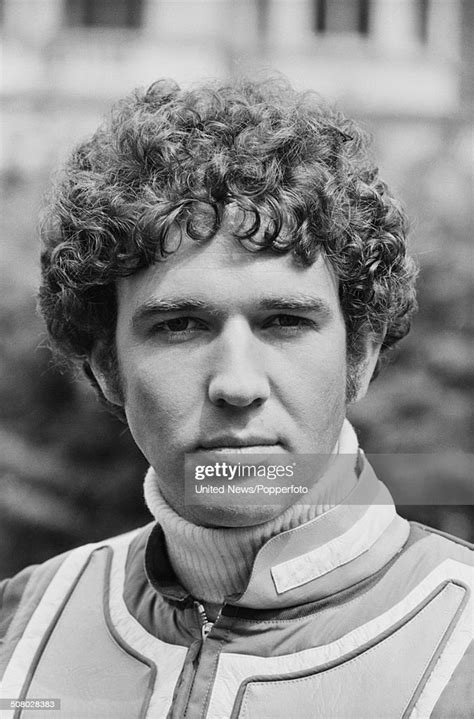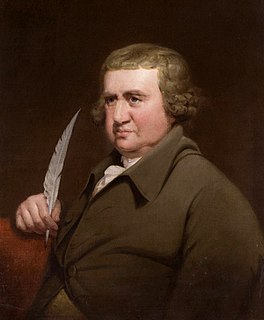A Quote by Anthony Standen
If this "critical openminded attitude" ... is wanted, the question at once arises, Is it science that should be studied in order to achieve it? Why not study law? A judge has to do everything that a scientist is exhorted to do in the way of withholding judgment until all the facts are in, and then judging impartially on the merits of the case as well as he can. ... Why not a course in Sherlock Holmes? The detectives, or at least the detective-story writers, join with the scientists in excoriating "dogmatic prejudice, lying, falsification of facts, and data, and willful fallacious reasoning."
Quote Topics
Achieve
All The Facts
Arises
Attitude
Case
Course
Critical
Data
Detective
Detectives
Dogmatic
Everything
Facts
Falsification
Holmes
Join
Judge
Judging
Judgment
Law
Least
Lying
Merits
Once
Order
Prejudice
Question
Reasoning
Science
Scientist
Scientists
Sherlock Holmes
Should
Story
Story Writers
Studied
Study
Then
Until
Wanted
Way
Well
Why
Why Not
Willful
Withholding
Writers
Related Quotes
Detection is, or ought to be, an exact science and should be treated in the same cold and unemotional manner. You have attempted to tinge it with romanticism, which produces much the same effect as if you worked a love-story ... Some facts should be suppressed, or, at least, a just sense of proportion should be observed in treating them. The only point in the case which deserved mention was the curious analytical reasoning from effects to causes, by which I succeeded in unravelling it.'' —Sherlock Holmes on John Watson's "pamphlet", "A Study in Scarlet".
When Sir Arthur Conan Doyle conceived Sherlock Holmes, why didn't he give the famous consulting detective a few more quirks: a wooden leg, say, and an Oedipus complex? Well, Holmes didn't need many physical tics or personality disorders; the very concept of a consulting detective was still fresh and original in 1887.
There was once a professor of law who said to his students. When you are fighting a case, if you have facts on your side hammer them into the jury, and if you have the law on your side hammer it into the judge. But if you have neither the facts nor the law, asked one of his listeners? Then hammer the hell into the table, answered the professor.
Since the era of 'Sherlock Holmes,' private detectives had long been able to influence cases on their own. But the online detective, who had no sort of professional training or even long practice, is a purely modern phenomenon. The Internet changed everything by letting anyone become a self-appointed 'expert' on a case.
I'm a common law judge. I believe in deciding every case on its facts, not on a legal philosophy. And I believe in deciding each case in the most limited way possible, because common law judges have a firm belief that the best development of the law is the one that lets society show you the next step, and that next step is in the new facts that each case presents.
'Facts, facts, facts,' cries the scientist if he wants to emphasize the necessity of a firm foundation for science. What is a fact? A fact is a thought that is true. But the scientist will surely not recognize something which depends on men's varying states of mind to be the firm foundation of science.
People take it for granted that the physical world is both ordered and intelligible. The underlying order in nature - the laws of physics - are simply accepted as given, as brute facts. Nobody asks where they came from; at least not in polite company. However, even the most atheistic scientist accepts as an act of faith that the universe is not absurd, that there is a rational basis to physical existence manifested as law-like order in nature that is at least partly comprehensible to us. So science can proceed only if the scientist adopts an essentially theological worldview.
Facts are neutral until human beings add their own meaning to those facts. People make their decisions based on what the facts mean to them, not on the facts themselves. The meaning they add to facts depends on their current story … facts are not terribly useful to influencing others. People don’t need new facts—they need a new story.
[The scientist] believes passionately in facts, in measured facts. He believes there are no bad facts, that all facts are good facts, though they may be facts about bad things, and his intellectual satisfaction can come only from the acquisition of accurately known facts, from their organization into a body of knowledge, in which the inter-relationship of the measured facts is the dominant consideration.
So many of the great detectives that we see on television now owe their origins to Sherlock Holmes. What was very exciting about Rob's pitch and script was that he is a real Holmes-ian expert. He knew all of the mythology. He was very well-versed in the genesis of Holmes and the stories. And the twist with Watson is something we jumped at immediately. It's a very forward-thinking way of doing the show.


































